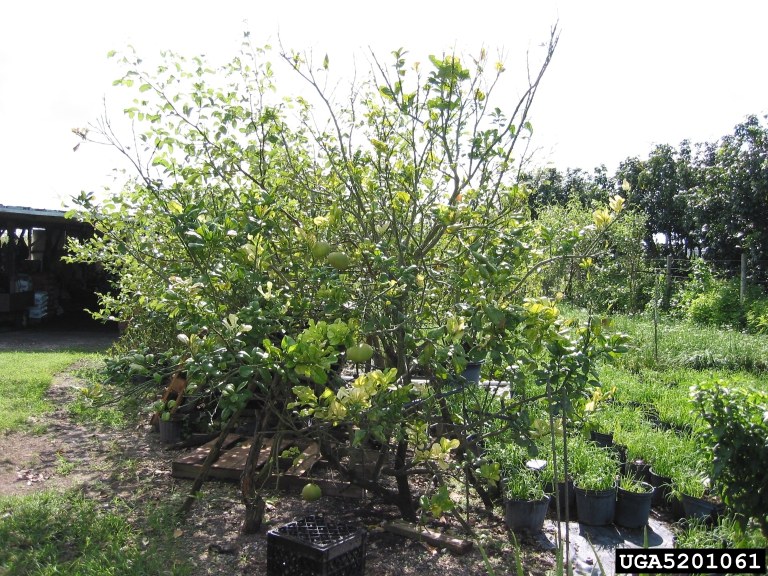Posted: June 14, 2019
Tim McNellis, an associate professor in Penn State’s College of Agricultural Sciences, received a $171,000 grant from the Citrus Research and Development Foundation to research citrus greening resistance.

Citrus greening on a pomelo tree. IMAGE: FLORIDA DIVISION OF PLANT INDUSTRY, FLORIDA DEPARTMENT OF AGRICULTURE AND CONSUMER SERVICES, BUGWOOD.ORG
UNIVERSITY PARK, Pa. - Tim McNellis, an associate professor in Penn State's College of Agricultural Sciences, received a $171,000 grant from the Citrus Research and Development Foundation to research citrus greening resistance.
The research of McNellis' program will characterize grapefruit plants that are potentially resistant to citrus greening.
Citrus greening, also called huanglongbing (HLB), is devastating the Florida citrus industry, as well as threatening the citrus industries in California and other citrus producing areas in the United States and worldwide. The disease causes yield reductions and tree mortality. In the United States, HLB is believed to be caused by the insect-vectored, Gram-negative bacterium 'Candidatus Liberibacter asiaticus.' Highly popular citrus varieties, including sweet oranges, grapefruits, lemons and limes, are especially susceptible HLB.
In collaboration with Dr. Tim Gottwald's lab at the United States Horticultural Research Laboratory in Fort Pierce, Florida, grapefruit trees potentially resistant to HLB will be tested for HLB resistance using a system that mimics the natural infection process in the greenhouse. Any resistance exhibited by these trees could be useful for the citrus industry, since there are currently no commercially important citrus cultivars that are resistant to HLB. The trees will also be characterized for their precocious blooming phenotype, which could accelerate breeding of new citrus varieties resistant to HLB using existing germplasm resources.
This two-year grant will help support the research of a master's and doctoral student in McNellis' lab in the Department of Plant Pathology and Environmental Microbiology.

